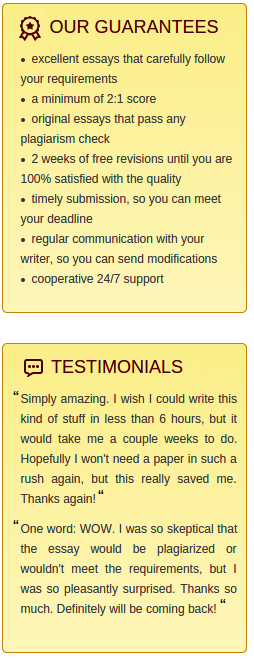Writing Outstanding Assignment Conclusions
Saturday, April 24th, 2010Your assignment conclusion should leave the reader satisfied
Since it takes a lot of time and energy to write a whole assignment, why should we care so much about the two or three final paragraphs? Well, we must! Assignment conclusions are not something to leave aside, since the final statement of the work is actually one of the most important parts. It is a fundamental element of the writing task and it should be prepared accordingly. Why is that? Because the conclusion synthesizes your whole assignment, because it leaves the door open for continuing the research, and last but not least, because some teachers –although it sounds sad- will only read that part of your work. So make sure you follow these tips next time you are writing a conclusion.
Should the conclusion be brief?
Almost by definition, an assignment conclusion should be brief and go straight to the point, since a very extensive conclusion may leave in readers the impression that the author of the assignment needed to fill the word count. However, it is possible to conclude with an extensive conclusion if you do not only summarize your work, but instead you continue developing new ideas. For example, different ways the writing could have been focused, other information you may have included or some problems you faced during the writing process.
Recapitulate
The conclusion of any written assignment should be focused on providing a general review of the whole work. That is why very busy teachers –or lazy readers- go directly to this part of the work. So always remember to mention your hypothesis and the main points you have developed in the body paragraphs of the assignment before actually finishing the work.
Leave the door open
Unless you are not writing more than a few hundred words (in which case the conclusion should be a single sentence), the assignment conclusion should provide ideas on how to follow or go on with the research in new directions. It is a very popular topic of modesty to admit that any writing assignment could be lead in a different direction than the one you decided to take, or that with a more extensive research the conclusions could be different. Even if you would never change a single word of your paper, let the teacher believe otherwise.
Correct yourself
In your conclusion you may correct your own mistakes before the teacher does with the usual ugly red ink… Indeed, the conclusion of your work is an ideal place for self correcting. Do you think you could have made a query longer, read more books on the topic or face the research from a different angle? Say it here, then. Again, it is part of the topic of modesty, but the readers (especially teachers) will certainly appreciate it. Better for you to correct your own mistakes, than for them to cost you part of your mark.
No idea how to write conclusion? – we are here to cover all your writing needs
Writing a great assignment conclusion is not as difficult as it seems. You can always choose the best way to conclude according to your work.
Related Posts
Tags: assignment conclusion, assignment writing, concluding an essay




